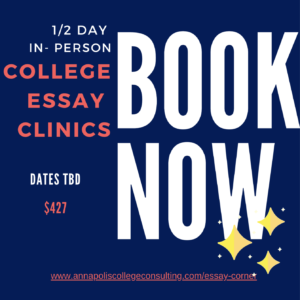Did you know that you have an excellent resource right under your nose? That’s right, your high school counselor will be able to help you quite a bit through your journey to college. Many students see very little of their counselors. It’s kind of that 1-2 times a year when you check-in, pick classes, and for some, discuss any trouble you may have found yourself in.
We highly recommend that you get to know your counselor as they can advocate for you, they may be writing a letter of recommendation for you, and they are the ones that help make sure that the school program (Naviance, etc.) does what it needs to do, and sends what it needs to send to colleges during the application season.
Our advice? Make an appointment and go. Don’t know what to talk about? Here are some key ideas.
1. Choosing classes for junior/senior year.
This is an important part of the process and most likely happening now. As you know, colleges look at course rigor as a top priority when evaluating applications. We want to see you take your classes (math, science, social studies, English, and language) as far as you can while showing interest in any topics you plan to pursue in college (PLTW, computer science, psychology, art, and more).
2. SAT/ACT- determine a testing plan.
When have you or will you take the SAT/ACT and which one is right for you? Most students still end up taking one of these tests two to three times before applying to college. Usually, your school will offer one in spring. There are many ways to study and plan for a successful result. Often your math class will dictate when you may be ready for the test as algebra 2 is the basis for most of the math questions).
3. Understand their timeline and their involvement.
It is important to get your head around the way things work in the counseling office. There may be a newsletter or announcements regarding when certain college-prep “things” are going on. Find out when they start the process and what you will need to do in order to prepare for it. Remember, your counselor may write a letter of recommendation about you, so getting to know your counselor is a big benefit to you.
4. What you do with your free time.
Discuss the available clubs and activities at the school and how joining may help you build your profile. See if they have any recommendations for summer programs or internships. You may have a separate internship coordinator and that is someone to visit as well. Doing something that shows interest in your potential college major or a passion of yours is key.
5. Ask about their process for recommendations.
Many colleges would like teacher recommendations. Your school may have a particular plan for how that process works. Try to understand when you need to be ready to ask and what your expectations on timing should be. We recommend you find 2 junior year teachers- one from humanities and one from STEM.
6. The college list.
Your counselor may help you put together a list of schools where you may “fit.” But how will they know what you are looking for if they do not know you? It is a good idea to have a few where you are comfortable in getting into and some that may be a stretch or reach. You can also have them show you how past students have faired at the schools that you are interested in. There is often a historical scattergram of acceptances etc. that is very interesting.
7. Ask about any special scholarships that they know about,
Although “outside scholarships” are hard to find. Often the counseling office will have a list of those opportunities that students from your school do get. They can also nominate you for some top-tier programs at highly selective universities; another good reason to get to know your counselor.
Our advice to you? Use your resources. Make the most of your high school years. If you need help understanding the process or putting together the best possible application, we are here for you. Visit our website and make an appointment to talk with one of us. Best of luck.

Join our in-person essay clinics in Annapolis this June www.annapoliscollegeconsulting.com
Lee@annapoliscollegeconsulting.com

